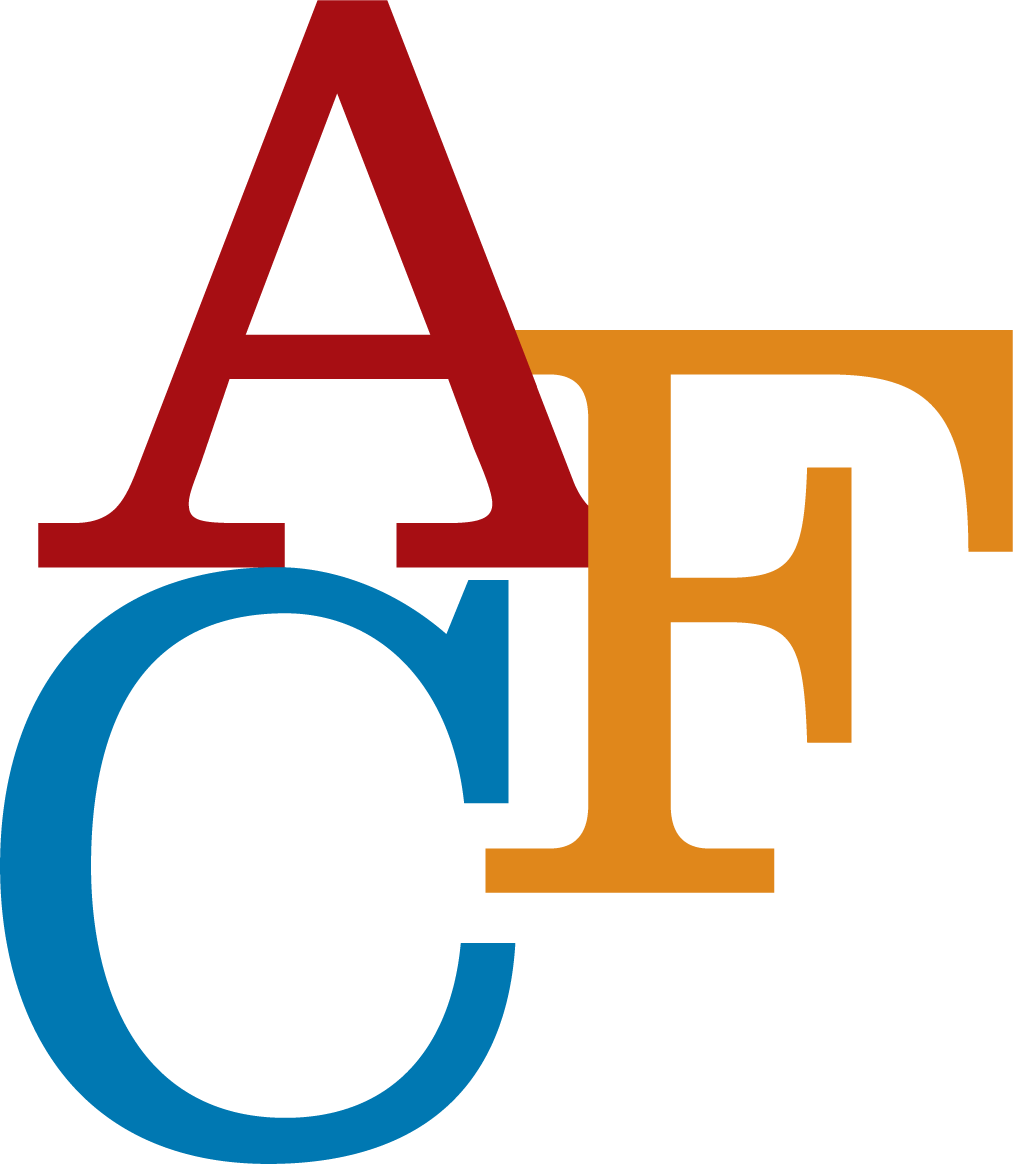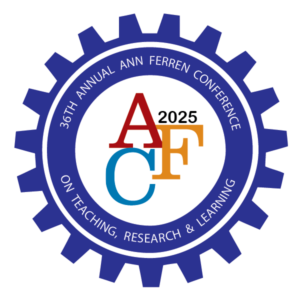Conference Program:
Thursday, January 9
Click on any session title to access additional details about the session
Thursday | 9:30 AM – 10:45 AM Sessions:
Session 101: Thriving Together: The Impact of Peer Mentorship on Faculty Engagement and Professional Growth
Location: Library Cafe B30
Presenters: Darrion Sprueill (Senior Project Manager, Office of the Deputy Provost & Dean of Faculty), Priya Doshi (Associate Dean for Faculty and Inclusive Excellence, Office of the Deputy Provost & Dean of Faculty), Jennifer Steele (Professor, School of Education), Maria De Jesus (Professor, SIS | Environment, Development & Health), Nuria Vilanova (Associate Dean of Undergraduate Studies and Associate Professor, CAS | World Languages and Cultures), Ralph Sonenshine (Senior Professorial Lecturer, CAS | Economics), Jessica Owens-Young (Associate Professor, CAS | Health Studies) & Holly Swanson (Professorial Lecturer and Director of Biology Laboratories, CAS | Biology)
Leaders and participants of the NSF-funded ADVANCE AU faculty peer mentorship cohorts will discuss the program’s development and effectiveness in fostering professional growth, trust, and belonging. They will explore how the model supports academic environments and how department chairs and program directors can implement peer mentorship to enhance faculty engagement, retention, and collaboration.
Session 102: Reassessing AI in Education: Balancing Technology and Cognitive Engagement
Location: Hall of Science T07
Zoom Link: Join this session live-stream
Presenters: Brigid Maher (Professor, SOC | Film & Media Arts), Kelly Joyner (Director, Writing Studies Program, CAS | Literature), Adam Greenberg (Professorial Lecturer, CAS | Literature) & Benjamin Djain (Professorial Lecturer, CAS | Literature)
This panel critically examines the belief that integrating Artificial Intelligence (AI) into education is essential for career readiness. Faculty members, while using technology in their teaching, question AI’s necessity and effectiveness. We invite attendees to explore low-tech (i.e. not involving extensive use of electronic devices) classrooms prioritizing cognitive engagement and student agency, discussing pedagogical strategies and the impact of AI on learning outcomes and critical thinking skills.
Session 103: Redefining Icebreakers: Learn and Practice Inter-Activities That Deliver Info, Build Bonds, and Get Students Off Screens
Location: McKinley 201
Presenter: Susan Comfort (Adjunct Instructor, CAS | Health Studies)
Dynamic inter-activities boost learning goals and get students off screens to talk to each other. In this experiential workshop, we’ll all participate in a variety of activities, learning new strategies, questions, and games to boost student connection and learning. Learn from Professor Comfort’s background in play-based education; leave with a toolkit to revitalize your classroom from day one.
Thursday | 11:00 AM – 12:15 PM Sessions:
Session 201: Making Assessment Work for You: A Collaborative Approach
Location: McKinely 201
Presenters: Diamond Brown (AU Core Assessment Analyst, AU Core) & Diane Palmer (Curriculum and Assessment Assistant, Complex Problems)
Faculty and staff interested in assessment (e.g., departmental assessment, assessment-focused committees, programmatic assessment, other data-inclined folks) are invited to a working session to discuss recent and upcoming projects. Participants will share insights, troubleshoot challenges, and explore collaboration opportunities, using assessment as a tool for faculty innovation.
Session 202: Integrating Artificial Intelligence to Rethink Teaching and Assessment
Location: Hall of Science T07
Presenter: Krisztina Domjan (CTRL AI in Teaching & Research Faculty Fellow and Senior Professorial Lecturer, CAS | Literature)
In this workshop, participants will explore the pedagogical benefits of AI tools in teaching, learning, and assessment via the Substitution, Augmentation, Modification, and Redefinition (SAMR) model and learn strategies for incorporating AI into lesson planning and innovative assessment methods aligned with the learning sciences. After learning these approaches, faculty will implement new practices for crafting and posting their Canvas assignments to better align with AI-informed pedagogy.
Session 203: Green Teaching In the Age of Big Data Impacts: A Co-Creation Workshop
Location: Hall of Science 103
Zoom Link: Join this session live-stream
Presenters: Ros Donald (Assistant Professor, SOC | Public Communication), Maya Livio (Assistant Professor, SOC | Film & Media Arts), Anna Olsson (Assistant Vice Provost of the Center for Teaching, Research & Learning and Director of the Green Teaching Program), Megan Litke (Director of Sustainability, Office of Sustainability) & Chelsea Butkowski (Assistant Professor, SOC | Communication Studies)
AU’s Green Teaching Certificate has the potential to prompt critical discussion about the impacts of classroom technologies and practices, from generative AIs to updating digital equipment. In this panel and co-creation workshop, participants will share perspectives on the future of green teaching and originate initial proposed updates to the certificate that will reflect the challenges of environmentally-aware teaching in the digital age.
Session 204: Implementing Open Education Resources In a Classroom
Location: Library Cafe B30
Presenters: Rachel Borchardt (Scholarly Communication Librarian, University Library), David Jacobs (Adjunct Professor, KSB | Management) & Jim Quirk (Senior Professorial Lecturer, SPA | Government)
Open education resources (OERs) are free or no-cost materials like textbooks that reduce course costs for students, but the process of finding and incorporating OER into a classroom can be daunting. In this session, a librarian will introduce OERs and discuss their benefits. Faculty presenters will discuss their experiences with OER use in their classes, including time for Q&A.
Thursday | Lunch Plenary: 12:45 PM – 2:15 PM:
Lunch Plenary: Boundaries Crossed and Not Crossed: Advancing Literacy Through A District University Partnership
Location: Mary Graydon Center (MGC) Tavern
Zoom Link: Join this session live-stream
Presenters: Diana Burley (Vice Provost for Research and Innovation), Danielle Gervais Sodani (Director, Institute for Innovation in Education, School of Education) & Eric Bethel (Instructional Superintendent, DC Public Schools)
The SOAR Seminar Series for faculty, organized by the Translating Research into Action Center (TRAC) and co-hosted with CTRL and the University Library, features AU faculty and partners from policy, practice, and private institutions with deep experience in research translation and achieving Societal impact through Objective, Actionable Research. The first segment of the session begins with welcome remarks from Diana Burley who will provide an overview of TRAC and its efforts in advancing research-informed civic engagement. In the second half of the session, conference participants will learn about a research-practice partnership between school and district leaders in 15 elementary schools and AU/SOE researchers. Danielle Sodani and Eric Bethel will share the partnership’s origins, the commitments, practices, and processes they have for learning together, the challenges they face, and the ways they have found success in advancing research and practice.
Thursday | 2:30 PM – 3:20 PM Sessions:
Session 301: Beyond Annotated Bibliographies: Pedagogy and Practices for Better Student Literature Reviews
Location: Library Cafe B30
Presenters: Emily Peterson (Associate Professor, School of Education) & Clarissa Ihssen (Sciences Librarian, University Library)
For STEM and Social Science classes, independent studies, and theses, we frequently ask students to write literature reviews. But the task of searching for and summarizing literature is challenging to do, and even more challenging to teach. This session will share tips and tools for conducting systematized reviews across disciplines and help attendees create assignments that support their students in writing better literature reviews.
Session 302: Revolutionizing Education: Introducing Sarah 2.0, the AI Virtual Teaching Assistant
Location: McKinley 201
Presenter: Aref Zahed (Professorial Lecturer, CAS | Computer Science)
Discover the potential of Sarah 2.0, the AI virtual teaching assistant, designed to support faculty and students through innovative teaching practices. Learn how AI can address challenges in higher education, from managing workload to enhancing student engagement, while fostering a personalized and scalable learning environment.
Session 303: Complex Problems: What’s in a Mentor? Faculty and Program Leader Collaboration Builds Mentorship
Location: Hall of Science T07
Zoom Link: Join this session live-stream
Presenters: Reilly Simmons (Program Coordinator, AU Core | Complex Problems) & Kyrsten Novencido (Coordinator, Living-Learning Communities, AU Compass), Rebecca Comfort (Assistant Director, UEAS | AU Core), Martyn Oliver (Faculty Chair, AU Core and Senior Professorial Lecturer, CAS | Critical Race, Gender & Culture Studies), Jenna Oshana ((Class of 2025, Complex Problems Program Leader), Adam Tamashasky (Hurst Senior Professorial Lecturer, CAS | Literature), Rita Sho (Class of 2025, University College Complex Problems Program Leader), Rebecca Hazen (Senior Professorial Lecturer, CAS | Biology), Ian Schlater (Class of 2026, University College Complex Problems Program Leader), David Reznik (Senior Professorial Lecturer, CAS | Sociology) & Nicole Spirea (Class of 2025, Complex Problems Program Leader)
In this session, student leaders will share how their student-staff roles enabled opportunities for faculty collaboration and mentorship in times of change. This relationship between undergraduate Program Leaders and faculty creates avenues for faculty and student mentorship simultaneously. The student leader and faculty panel will be composed of Complex Problem Program Leaders, University College Program Leaders and CP/UC Faculty.
Session 304: Participation in Faculty Learning Communities: An Approach to Advancing Equity at AU
Location: Hall of Science 103
Zoom Link: Join this session live-stream
Presenters: Samantha Cohen (Hurst Senior Professorial Lecturer, School of Education), Beverly Peters (Senior Professorial Lecturer, Office of Graduate and Professional Studies) & Shari Watkins (Senior Research Fellow, CTRL)
This interactive workshop replicates a Faculty Learning Community (FLC) to discuss challenges, goals, and plans for centering equity in teaching. Participants will explore equity-focused FLCs, deconstruct biases, and foster interdisciplinary connections. Presenters will model the FLC process, encouraging introspection and discussion. Participants will learn how FLCs support equitable teaching, collaboration, and continuous learning at AU.
Thursday | 3:35 PM – 4:25 PM Sessions:
Session 401: Integrating Problem-Based Learning into a Non-Majors Science Course
Location: Hall of Science 103
Zoom Link: Join this session live-stream
Presenters: Barbara Balestra (Senior Professorial Lecturer, CAS | Environmental Science), Dhananjaya Katju (Professorial Lecturer, Environmental Science) & Carolyn Parker (Senior Professorial Lecturer and Director, Graduate Teacher Education, School of Education)
Our session will describe the NSF-funded project, Enhanced Teaching and Learning Through Problem-Based Pedagogy (AU: ETL), a collaboration between SOE and CAS faculty. We will discuss aligning ENVS-150 with problem-based learning (PBL), an approach that encourages students to explore real-world issues in collaborative settings, and we will highlight data showing increased student motivation. We will share successes, challenges, and lessons learned from this professional development experience.Session 402: The Importance of Principled Use in Times of Technological Change
Location: Hall of Science T07
Zoom Link: Join this session live-stream
Presenters: Regina Curran (Director of Cyber Policy, Office of Information Technology), Gihan Fernando (Assistant Vice Provost of the Career Center) & Alison Thomas (Assistant Dean for Academic Integrity and Hurst Senior Professorial Lecturer, CAS | Literature)
The Responsible Use of AI Working Group, convened in summer 2024, developed guidelines for AU’s use of generative AI. Representing diverse university roles, the group examined institutional responses and drafted principles for AI use. Participants are invited to discuss and provide feedback on these guidelines, exploring what “Responsible AI” means for their roles at AU.Session 403: The Essential Role of AU Faculty in Student Success
Location: McKinley 201
Presenters: Ashlie Prioleau (Assistant Vice President for Student Success & Retention, Enrollment Services Administration), Amanda Getz (Associate Director of First Year Advising, Office of Undergraduate Education and Academic Student Services) & Michele Lansigan (Hurst Senior Professorial Lecturer, CAS | Chemistry)
This session explores the critical role of faculty in student success, thriving, and retention through mentorship, early warning techniques, and academic wellness. Featuring data, personal stories, and tools available at AU, the session aims to create a supportive community for all students.
Session 404: Measuring and Increasing Societal Impact
Location: Library Café B30
Presenters: Susanna Campbell (Provost Associate Professor, SIS | Foreign Policy & Global Security) & Rachel Borchardt (Scholarly Communication Librarian, University Library)
The societal impact of research is increasingly emphasized by universities and grant funders, but can seem daunting and difficult to measure. In this session, two TRAC team members will discuss strategies for measuring stakeholder impact as well as methods to expand the reach of your work through research translation and open access.

